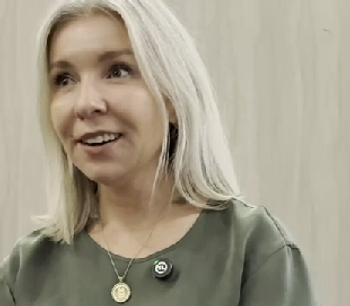
Conference Preview from the Cutting Edge
A look at the 2015 joint American Society for Adolescent Psychiatry (ASAP) and International Society for Adolescent Psychiatry and Psychology (ISAPP) Scientific Meeting in March. There, the author will be presenting two sessions that address adolescent sexuality and sexual development issues.
[[{"type":"media","view_mode":"media_crop","fid":"31293","attributes":{"alt":"Gregg Dwyer, MD, adolescent psychiatry","class":"media-image","id":"media_crop_1678926582014","media_crop_h":"0","media_crop_image_style":"-1","media_crop_instance":"3297","media_crop_rotate":"0","media_crop_scale_h":"0","media_crop_scale_w":"0","media_crop_w":"0","media_crop_x":"0","media_crop_y":"0","title":" ","typeof":"foaf:Image"}}]]The 2015 joint American Society for Adolescent Psychiatry (ASAP) and International Society for Adolescent Psychiatry and Psychology (ISAPP)
LGBTQ and Adolescence: Identity, Peers, Family, School and Society
This session offers an evidence-based overview of adolescent sexual development with a focus on mental health assessment for identifying and addressing pathology. It addresses the sometimes confused labels of sexual identity, gender identify, gender role, sexual orientation, and sexual behavior.
Childhood, and in particular adolescence, is a time of exploration and growth across all domains of life. Sexuality and sexual behavior are no exceptions, but are areas not infrequently cloaked in secrecy by both the adolescents and the adults in their lives.
Unlike other realms of growth, these areas can garner more judgmental responses, attempts to control expression, and negative impact on future functioning. These negative consequences can be mitigated through education, understanding, and tolerance by all concerned. The intent of this presentation is to provide tools for education facilitating
“Sexually Violent Predators”: Could Adolescents Meet Criteria?
This presentation addresses adolescent sexual problem/offending behaviors with a focus on “Sexually Violent Predator” law, assessment, and treatment. The goal is to provide attendees with the key components of a diagnostic and sexual offending risk assessment for an adolescent who has committed a sex offense.
In addition, the session includes identification of psychological and somatic interventions to treat and manage sexual problem/offending behaviors by adolescents. The premise is that adolescence is a time of development, personal exploration, and trial and error. As such, new behaviors are attempted and conducted, different paths are tried and at times abandoned, and mistakes are made. Sexual development and behaviors as a facet of human development and existence fit this pattern.
What is defined as appropriate, acceptable, and legal even, is in part a function of social, cultural, medical, governmental, political, and religious definitions. These definitions change and vary across time and populations. “Sexually Violent Predator" is a legal term, which tends to solicit strong reactions from the public at large and government entities responsible for law enforcement and corrections.
What happens when an adolescent’s sexual behavior becomes the focus of these systems? Can, and if yes should, adolescents be given the label of “Sexually Violent Predator”? A review of our evidence-based knowledge will be presented for attendees to consider an answer to this question.
The annual meeting will also feature resumption of ASAP’s certification examination in adolescent psychiatry, which is designed for generally-trained psychiatrists who are either interested in or are actively working with adolescents to gain certification as an expert in the field. For further information regarding the conference or the certification examination, please visit
Disclosures:
Dr Dwyer is a former ASAP President and the current Director of the Community and Public Safety Psychiatry Division and Sexual Behaviors Clinic and Lab of the Medical University of South Carolina Department of Psychiatry and Behavioral Sciences in Charelston, South Carolina.
Newsletter
Receive trusted psychiatric news, expert analysis, and clinical insights — subscribe today to support your practice and your patients.







